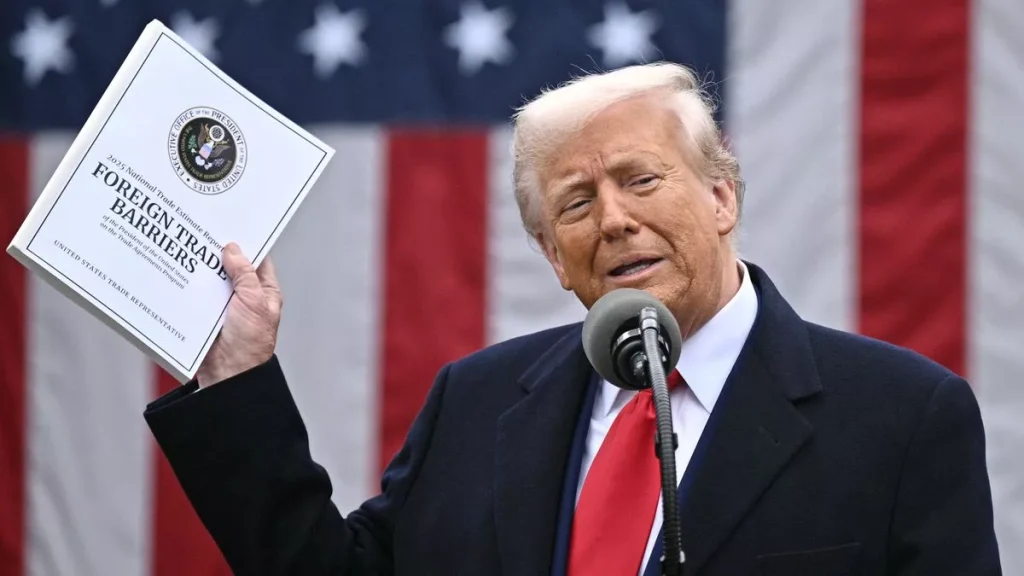The head of the African Development Bank (AfDB) has warned that a sweeping wave of tariffs imposed by the United States could send “shock waves” through African economies, risking reduced trade, increased inflation, and higher debt-servicing burdens.
AfDB President Akinwumi Adesina raised the alarm during a speech delivered on Friday at the National Open University of Nigeria in Abuja. He spoke against the backdrop of recent volatility in global markets, following a series of abrupt tariff decisions by US President Donald Trump.
While a base tariff of 10 percent remains in place for all trading nations, Washington has also introduced significantly higher duties on Chinese imports. These measures represent a dramatic departure from decades of free-trade consensus, with 47 African nations potentially facing even steeper tariffs.

Adesina cautioned that the imposition of new levies would reduce Africa’s foreign exchange earnings, placing pressure on local currencies and escalating the cost of imported goods.
“Inflation will increase as costs of imported goods rise and currencies devalue against the US dollar,” he said. “The cost of servicing debt as a share of government revenue will rise, as expected revenues decline.”
He further warned that the impact of America’s protectionist stance would reverberate across the globe, compounding Africa’s economic vulnerabilities. With trade flows disrupted, countries in Europe and Asia may also reduce their imports from African nations, he added.
The AfDB president’s remarks also touched on related concerns such as dwindling foreign aid and migration, both of which could be exacerbated by tighter economic conditions.
Observers have speculated that affected countries may shift their trade relations towards other global partners, particularly China. However, Adesina emphasised that such a realignment would not be a simple or immediate solution, especially in the face of global uncertainty.


 Trending
Trending 
